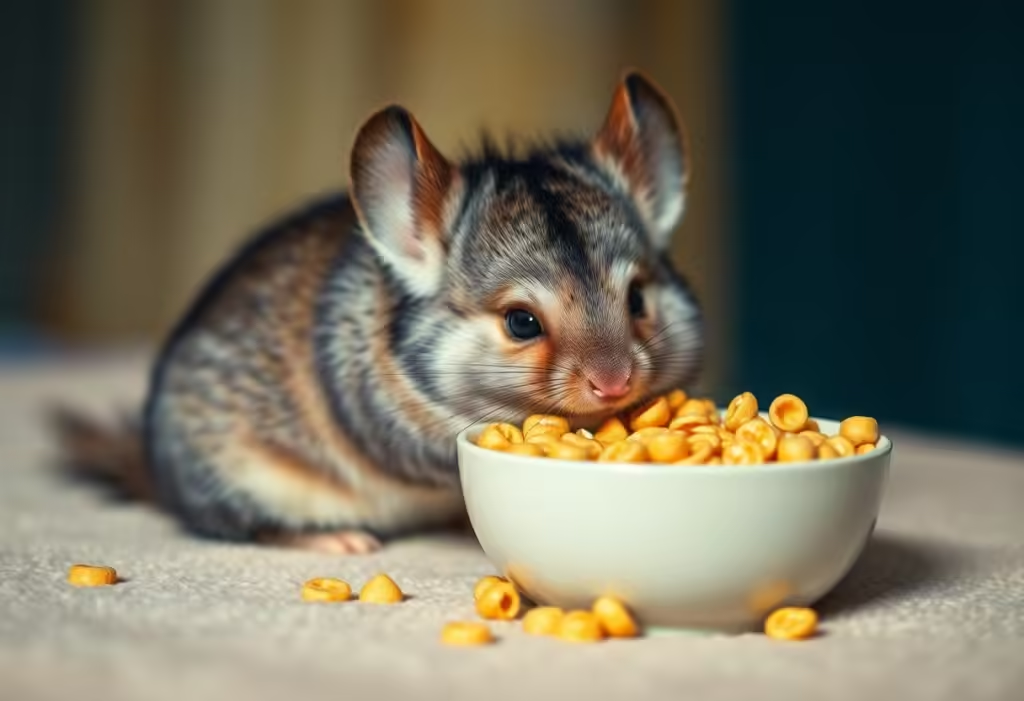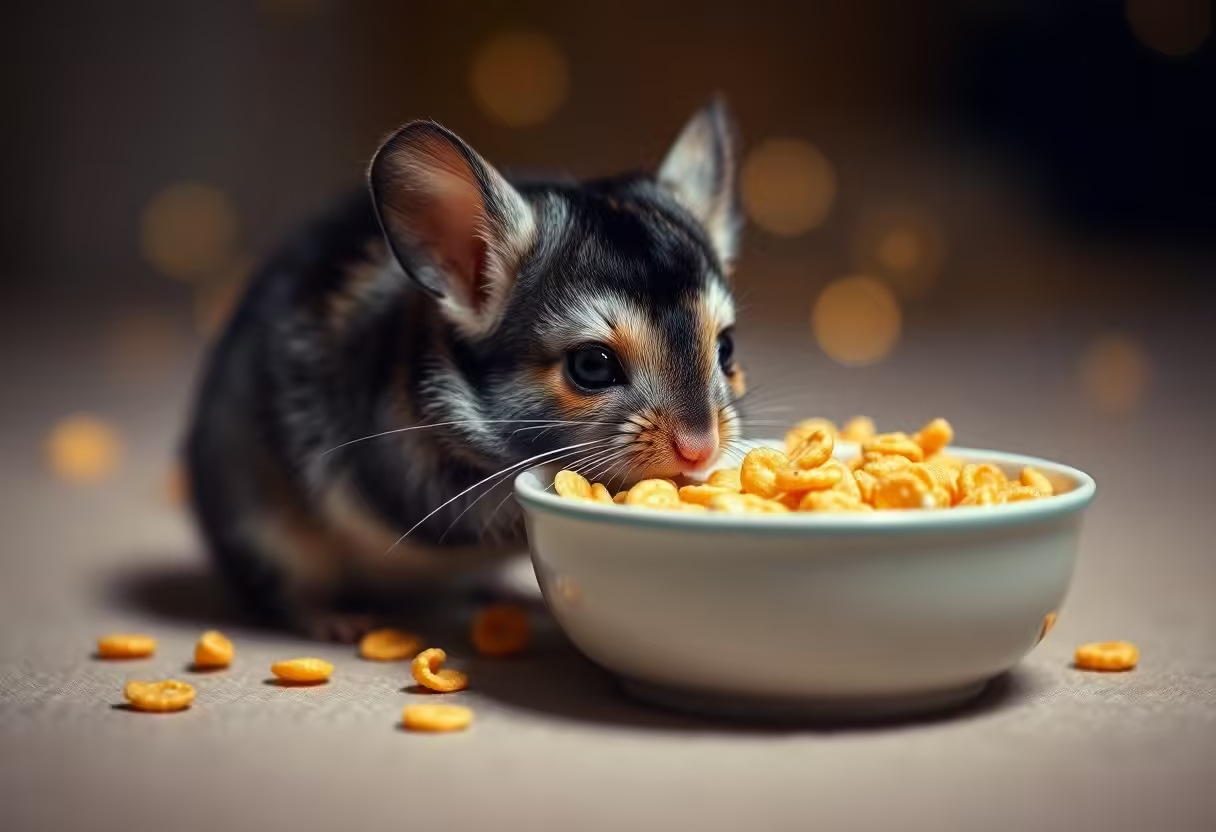No, They Should Not Eat Corn Flakes Chinchillas have sensitive digestive systems that thrive on high-fiber, low-sugar diets. Corn flakes, a processed food high in carbohydrates and sugar, are unsuitable for chinchillas and can lead to health issues such as digestive upset and obesity. In this guide, we’ll explain why corn flakes are harmful and suggest healthier alternatives to keep your pet happy and healthy.
Key Takeaways
- Corn flakes are unsafe for chinchillas due to their high sugar and low fiber content.
- Chinchillas need a diet of hay, pellets, and safe treats, not processed foods like corn flakes.
- Feeding corn flakes can cause digestive issues, obesity, and nutritional imbalances.

Nutritional Profile of Corn Flakes
| Nutrient | Amount (per 30g serving) | Impact on Chinchillas |
|---|---|---|
| Sugar | ~8g | Leads to obesity and disrupts gut health. |
| Fiber | ~0.9g | Insufficient for chinchillas’ dietary needs. |
| Carbohydrates | ~26g | High levels cause weight gain. |
| Iron (added) | ~8mg | Excessive iron can be toxic. |
Corn flakes lack the essential nutrients and fiber required by chinchillas, making them a poor dietary choice.
Why Corn Flakes Are Harmful to Chinchillas
1. Digestive Disruption
Corn flakes are low in fiber, a key component of a chinchilla’s diet, and high in processed carbohydrates, which can cause:
- Bloating.
- Diarrhea.
- Stomach pain.
2. Risk of Obesity and Diabetes
Their high sugar and calorie content can lead to:
- Rapid weight gain.
- Blood sugar spikes, increasing the risk of diabetes.
3. Lack of Nutritional Value
Corn flakes provide none of the fiber or calcium that chinchillas need for digestion and bone health. Feeding them regularly can lead to deficiencies in essential nutrients.
What Should Chinchillas Eat Instead?
A chinchilla’s diet should consist of:
| Food | Why It’s Beneficial |
|---|---|
| Timothy hay | High in fiber; essential for digestion. |
| Chinchilla pellets | Formulated to meet nutritional needs. |
| Carrots (small pieces) | Low sugar, nutrient-dense treat. |
| Bell peppers | Provides vitamins without added sugar. |
| Dried rosehips | Antioxidant-rich; safe in small amounts. |
Safe Feeding Guidelines
If you’re looking for healthy treats for your chinchilla:
- Avoid processed foods like corn flakes, chips, and cookies.
- Limit fruits and vegetables to no more than 10% of their diet.
- Introduce new foods gradually and monitor for signs of digestive upset.
FAQs
Q: Can chinchillas eat corn flakes as an occasional treat?
A: It’s best to avoid corn flakes entirely. Even in small amounts, their high sugar and low fiber content can harm a chinchilla’s digestion. Opt for healthier treats like dried rosehips or carrots.
Q: Are unsweetened corn flakes safer for chinchillas?
A: Unsweetened corn flakes lack added sugars but still have high carbohydrates and insufficient fiber, making them unsuitable for chinchillas.
Q: Can corn flakes replace chinchilla pellets?
A: No, corn flakes cannot replace chinchilla pellets. Pellets are specifically formulated to meet chinchillas’ nutritional needs, while corn flakes lack essential nutrients and fiber.
Q: What signs indicate a chinchilla is reacting poorly to food?
A: Look for symptoms such as diarrhea, bloating, lethargy, or changes in appetite. If these occur, consult a veterinarian immediately.
Conclusion
Corn flakes are not a safe or suitable food for chinchillas. Their high sugar, low fiber, and lack of essential nutrients make them harmful to your pet’s health. Instead, focus on a diet rich in hay, chinchilla-specific pellets, and occasional safe treats like bell peppers or dried rosehips.
By avoiding processed foods and prioritizing proper nutrition, you can ensure your chinchilla stays happy and healthy. If you’re unsure about any food, consult a veterinarian experienced in exotic pets.
